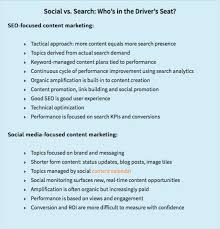SEO Marketing Plans: A Blueprint for Online Success
Search Engine Optimization (SEO) is the cornerstone of any successful digital marketing strategy. In today’s competitive online landscape, having a well-thought-out SEO marketing plan is crucial for businesses looking to improve their online visibility, drive organic traffic, and increase conversions.
The Importance of SEO Marketing Plans
An effective SEO marketing plan serves as a roadmap for achieving your online goals. It outlines the specific steps and strategies that will be implemented to enhance your website’s search engine rankings and attract more qualified leads.
By conducting thorough keyword research, optimizing on-page elements, building quality backlinks, and monitoring performance metrics, a well-executed SEO marketing plan can significantly impact your online presence and bottom line.
Key Components of an SEO Marketing Plan
When developing an SEO marketing plan, certain key components should be considered:
- Keyword Strategy: Identify relevant keywords that align with your business objectives and target audience.
- On-Page Optimization: Optimise meta tags, headings, content, and images to improve search engine visibility.
- Content Strategy: Create high-quality, engaging content that resonates with your audience and drives organic traffic.
- Link Building: Acquire authoritative backlinks from reputable websites to boost your site’s credibility and authority.
- Monitoring and Analysis: Track key performance indicators (KPIs) to measure the effectiveness of your SEO efforts and make data-driven decisions.
The Benefits of Implementing an SEO Marketing Plan
By implementing a comprehensive SEO marketing plan, businesses can enjoy a range of benefits, including:
- Increase in Organic Traffic: Improve search engine rankings to attract more organic traffic to your website.
- Better User Experience: Enhance website usability and user experience through optimized content and site structure.
- Growth in Brand Awareness: Increase brand visibility and recognition among target audiences through improved search engine visibility.
- Rise in Conversions: Generate more leads and conversions by targeting relevant keywords and optimizing conversion paths.
In Conclusion
An effective SEO marketing plan is essential for businesses looking to succeed in the competitive online landscape. By developing a strategic approach to search engine optimization and consistently monitoring performance metrics, businesses can achieve sustainable growth, increased online visibility, and improved ROI. Invest in an SEO marketing plan today to lay the foundation for long-term online success!
Frequently Asked Questions About SEO Marketing Plans: Development, Types, Stages, and Examples
- How do you develop a SEO marketing plan?
- What are the 7 types of SEO?
- What is an SEO marketing plan?
- What are the 4 stages of SEO?
- What are examples of SEO marketing?
How do you develop a SEO marketing plan?
Developing a comprehensive SEO marketing plan involves a strategic approach that begins with thorough research and analysis. Start by identifying your target audience and conducting keyword research to understand their search behaviour. Next, assess your current website’s SEO performance and identify areas for improvement. Define clear objectives and goals for your SEO strategy, such as increasing organic traffic, improving search engine rankings, or boosting conversions. Create a detailed plan that outlines specific tactics, timelines, and KPIs to measure success. Regularly monitor and adjust your SEO marketing plan based on performance data to ensure continuous improvement and optimal results.
What are the 7 types of SEO?
When it comes to SEO marketing plans, understanding the different types of SEO is crucial for crafting a comprehensive strategy. The 7 types of SEO encompass various aspects of search engine optimization, including on-page SEO, off-page SEO, technical SEO, local SEO, mobile SEO, e-commerce SEO, and voice search SEO. Each type plays a unique role in enhancing a website’s visibility and ranking on search engine results pages. By incorporating these different types of SEO into your marketing plan, you can effectively target your audience, improve user experience, and drive organic traffic to your website for long-term success.
What is an SEO marketing plan?
An SEO marketing plan is a strategic roadmap that outlines the specific actions and strategies to improve a website’s search engine visibility and drive organic traffic. It involves a comprehensive approach to Search Engine Optimization (SEO) that includes keyword research, on-page optimization, content strategy, link building, and performance monitoring. By creating an SEO marketing plan, businesses can enhance their online presence, attract more qualified leads, and ultimately increase conversions. This structured approach ensures that businesses are targeting the right audience with the right content at the right time to achieve their online goals effectively.
What are the 4 stages of SEO?
Understanding the four stages of SEO is crucial for developing a comprehensive SEO marketing plan. The first stage is the planning phase, where businesses conduct keyword research, competitor analysis, and set specific goals. The second stage involves on-page optimization, focusing on improving website elements such as meta tags, headings, and content to enhance search engine visibility. The third stage is off-page optimization, which includes building quality backlinks from reputable sites to boost domain authority. Finally, the fourth stage revolves around monitoring and analysis, where businesses track key performance indicators (KPIs) to evaluate the effectiveness of their SEO efforts and make data-driven decisions for continuous improvement.
What are examples of SEO marketing?
In the realm of SEO marketing, there are various strategies and tactics that businesses can employ to enhance their online presence and attract more organic traffic. Examples of SEO marketing include keyword research and optimisation, on-page SEO techniques such as meta tag optimisation and content creation, link building campaigns to increase website authority, local SEO efforts to target specific geographical locations, and regular monitoring and analysis of performance metrics to refine strategies for improved results. By incorporating these SEO marketing practices into a comprehensive plan, businesses can effectively boost their search engine rankings and reach their target audience with relevant and engaging content.


Leave a Reply